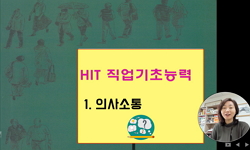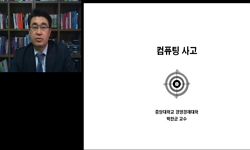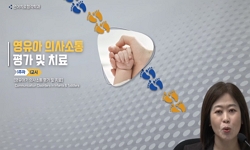Purpose: This study aimed to clarify the effects of simulation-based practice using a standardized patient on nursing students’ problem-solving capacity, self-efficacy for therapeutic communications, and confidence in clinical performance. Methods: ...
http://chineseinput.net/에서 pinyin(병음)방식으로 중국어를 변환할 수 있습니다.
변환된 중국어를 복사하여 사용하시면 됩니다.
- 中文 을 입력하시려면 zhongwen을 입력하시고 space를누르시면됩니다.
- 北京 을 입력하시려면 beijing을 입력하시고 space를 누르시면 됩니다.
https://www.riss.kr/link?id=A105503813
- 저자
- 발행기관
- 학술지명
- 권호사항
-
발행연도
2018
-
작성언어
Korean
-
주제어
Patient Simulation ; Problem solving ; Communication ; Nursing students ; 환자 시뮬레이션 ; 문제해결 ; 의사소통 ; 간호대학생
-
등재정보
KCI등재후보
-
자료형태
학술저널
-
수록면
13-24(12쪽)
-
KCI 피인용횟수
0
- DOI식별코드
- 제공처
-
0
상세조회 -
0
다운로드
부가정보
다국어 초록 (Multilingual Abstract)
Purpose: This study aimed to clarify the effects of simulation-based practice using a standardized patient on nursing students’ problem-solving capacity, self-efficacy for therapeutic communications, and confidence in clinical performance. Methods: We adopted a one-group pretest–posttest experimental design. We examined changes in the students’ problem-solving capacity, self-efficacy for therapeutic communications, and confidence in clinical performance before and after simulation-based practice and after clinical practicum. Results: The scores for problem-solving capacity increased from 159.28 before simulation-based practice to 263.02 after it and 161.99 after clinical practicum, but there was no statistical significance(p=.775, p=.339). The scores for self-efficacy for therapeutic communications rose with statistical significance from 120.78 before simulation-based practice to 126.30 after it (p= .017), but fell to 120.52 after clinical practicum. The scores for confidence in clinical performance increased with statistical significance from 54.98 before simulation-based practice to 59.42 after it (p=.008) and 58.50 after clinical practicum (p<.001). Conclusion: We confirmed that simulation-based practice with a standardized patient offers students hands-on experience of a clinical situation and, thereby, enhances their problem-solving capacity, self-efficacy for therapeutic communications, and confidence in clinical performance.
목차 (Table of Contents)
- ABSTRACT
- Ⅰ. 서 론
- 1. 연구의 필요성
- 2. 연구의 목적
- Ⅱ. 연구방법
- ABSTRACT
- Ⅰ. 서 론
- 1. 연구의 필요성
- 2. 연구의 목적
- Ⅱ. 연구방법
- 1. 연구설계
- 2. 연구대상
- 3. 연구도구
- 4. 연구 진행 절차
- 5. 자료수집 및 윤리적 고려
- 6. 자료분석방법
- Ⅲ. 연구결과
- 1. 대상자의 일반적 특성
- 2. 대상자의 문제해결능력, 치료적 의사소통자기효능감, 임상수행 자신감
- 3. 문제해결능력, 치료적 의사소통 자기효능감,임상수행 자신감의 효과
- Ⅳ. 논 의
- Ⅴ. 결론 및 제언
- 참고문헌
참고문헌 (Reference)
1 남경아, "학제간 의사소통을 포함한 시뮬레이션 교육이 간호대학생의 의사소통 자신감, 의사소통 행위, 기술적 술기 수행에 미치는 효과" 한국간호교육학회 23 (23): 409-418, 2017
2 심가가, "표준화환자를 활용한 아동간호 시뮬레이션이 간호학생의 불안, 자기효능감 및 비판적사고 성향에 미치는 효과" 한국산학기술학회 18 (18): 299-308, 2017
3 엄미란, "표준화환자를 활용한 실습교육이 피하주사 간호수행능력, 자기주도학습 준비도 및 문제해결능력에 미치는 효과" 한국간호과학회 40 (40): 151-160, 2010
4 주가을, "표준화환자 시뮬레이션 실습교육이 간호학생의 수혈 간호수행능력, 의사소통능력, 자기효능감과 비판적 사고능력에 미치는 효과" 기본간호학회 22 (22): 49-58, 2015
5 최은희, "표준화환자 및 고충실도환자모형 시뮬레이터를 활용한 시뮬레이션교육이 간호대학생의 문제해결능력 및 임상수행능력에 미치는 효과비교" 사단법인 인문사회과학기술융합학회 5 (5): 29-36, 2015
6 도경진, "표준화 환자를 활용한 정신간호실습교육의 학습 성과 효과" 한국웰니스학회 10 (10): 159-170, 2015
7 현경선, "표준화 환자를 활용한 간호학생의 당뇨식이교육 수행능력과 자기효능, 의사소통, 학습만족도 및 간호전문직관의 상관관계" 한국성인간호학회 22 (22): 221-228, 2010
8 박인희, "표준화 환자 시뮬레이션 실습교육에서 동영상을 활용한 동료학습의 효과: 수술 전후 간호를 중심으로" 한국성인간호학회 27 (27): 73-82, 2015
9 유효빈, "통합 환자 시뮬레이터를 활용한 훈련에 대한 체계적 고찰" 한국의학교육학회 22 (22): 257-268, 2010
10 박영례, "시뮬레이션교육프로그램이 간호대학생의 임상실습수행에 미치는 효과" 한국자료분석학회 17 (17): 1711-1724, 2015
1 남경아, "학제간 의사소통을 포함한 시뮬레이션 교육이 간호대학생의 의사소통 자신감, 의사소통 행위, 기술적 술기 수행에 미치는 효과" 한국간호교육학회 23 (23): 409-418, 2017
2 심가가, "표준화환자를 활용한 아동간호 시뮬레이션이 간호학생의 불안, 자기효능감 및 비판적사고 성향에 미치는 효과" 한국산학기술학회 18 (18): 299-308, 2017
3 엄미란, "표준화환자를 활용한 실습교육이 피하주사 간호수행능력, 자기주도학습 준비도 및 문제해결능력에 미치는 효과" 한국간호과학회 40 (40): 151-160, 2010
4 주가을, "표준화환자 시뮬레이션 실습교육이 간호학생의 수혈 간호수행능력, 의사소통능력, 자기효능감과 비판적 사고능력에 미치는 효과" 기본간호학회 22 (22): 49-58, 2015
5 최은희, "표준화환자 및 고충실도환자모형 시뮬레이터를 활용한 시뮬레이션교육이 간호대학생의 문제해결능력 및 임상수행능력에 미치는 효과비교" 사단법인 인문사회과학기술융합학회 5 (5): 29-36, 2015
6 도경진, "표준화 환자를 활용한 정신간호실습교육의 학습 성과 효과" 한국웰니스학회 10 (10): 159-170, 2015
7 현경선, "표준화 환자를 활용한 간호학생의 당뇨식이교육 수행능력과 자기효능, 의사소통, 학습만족도 및 간호전문직관의 상관관계" 한국성인간호학회 22 (22): 221-228, 2010
8 박인희, "표준화 환자 시뮬레이션 실습교육에서 동영상을 활용한 동료학습의 효과: 수술 전후 간호를 중심으로" 한국성인간호학회 27 (27): 73-82, 2015
9 유효빈, "통합 환자 시뮬레이터를 활용한 훈련에 대한 체계적 고찰" 한국의학교육학회 22 (22): 257-268, 2010
10 박영례, "시뮬레이션교육프로그램이 간호대학생의 임상실습수행에 미치는 효과" 한국자료분석학회 17 (17): 1711-1724, 2015
11 김덕희, "시뮬레이션 기반 통합실습 프로그램이 일 대학 간호학생의 문제해결과정과 간호수행능력 및 비판적 사고에 미치는 효과" 한국간호교육학회 18 (18): 499-509, 2012
12 조미혜, "간호학생의 임상실습 중 간호활동 경험 정도" 한국간호교육학회 13 (13): 143-154, 2007
13 최은영, "간호학생의 비판적 사고성향과 핵심능력" 기본간호학회 14 (14): 412-419, 2007
14 조인영, "간호대학생의 자기주도성, 간호활동경험 및 임상실습만족도간의 관계" 한국산학기술학회 15 (15): 3635-3647, 2014
15 Shin, U. J, "The risk factors of hypoglycemia for the patients with diabetes" 26 (26): 39-49, 2014
16 Cordeau, M. A, "The lived experience of clinical simulation of novice nursing students" 14 (14): 9-15, 2010
17 Phrampus, P. E, "The comprehensive textbook of healthcare simulation" Springer 73-84, 2013
18 Moon, M. S, "Nursing student’s initial clinical experience" 4 (4): 15-47, 1998
19 Ministry of Health and Welfare, "National health statistics national health and nutrition survey"
20 Larew, C, "Innovations in clinical simulation : application of Benner's theory in an interactive patients care simulation" 27 (27): 16-21, 2006
21 Brenner, P, "From novice to expert : excellence and power in clinical nursing practice" 84 (84): 1479-, 1984
22 Benner, P, "Educating nurses. a call for radical transformation" Jossey-Bass 2010
23 Song, I. H, "Developments and effects of simulationbased education program for hyperglycemia patient emergency nursing care" Sahmyook University 2015
24 Lee, E. L, "Development of outcome-based rubric for evaluating performance in nursing simulation" University of Ajou 2015
25 Park, H. J, "Counseling self-efficacy and empathy ability of psychiatric nurses" Ewha Woman’s University 2012
26 Kim, J. S, "Clinical practice experiences of nursing students" 10 (10): 63-76, 2009
27 Sohng, K, "Clinical performance evaluation of one to one interaction simulation program using standardized patient simulation for nursing students" 2 (2): 29-36, 2013
28 Korean Educational Developmental Institute, "A study on the developmental of life-skills: communication, problem solving, and self-directed learning" Korean Educational Developmental Institute 2003
동일학술지(권/호) 다른 논문
-
시뮬레이션 실습 교육이 신규 간호사의 임상수행능력, 비판적사고성향, 간호과정자신감에 미치는 효과
- 한국간호시뮬레이션학회
- 박효진
- 2018
- KCI등재후보
-
시뮬레이션과 동영상을 이용한 교육 후 간호대학생의 간호수행능력 비교 -호흡곤란 사례를 중심으로-
- 한국간호시뮬레이션학회
- 김미선
- 2018
- KCI등재후보
-
임상실습 중 스트레스 대처방식이 간호대학생의 진로정체감에 미치는 영향
- 한국간호시뮬레이션학회
- 노기옥
- 2018
- KCI등재후보
-
- 한국간호시뮬레이션학회
- 신정은
- 2018
- KCI등재후보





 KCI
KCI 코리아스칼라
코리아스칼라








